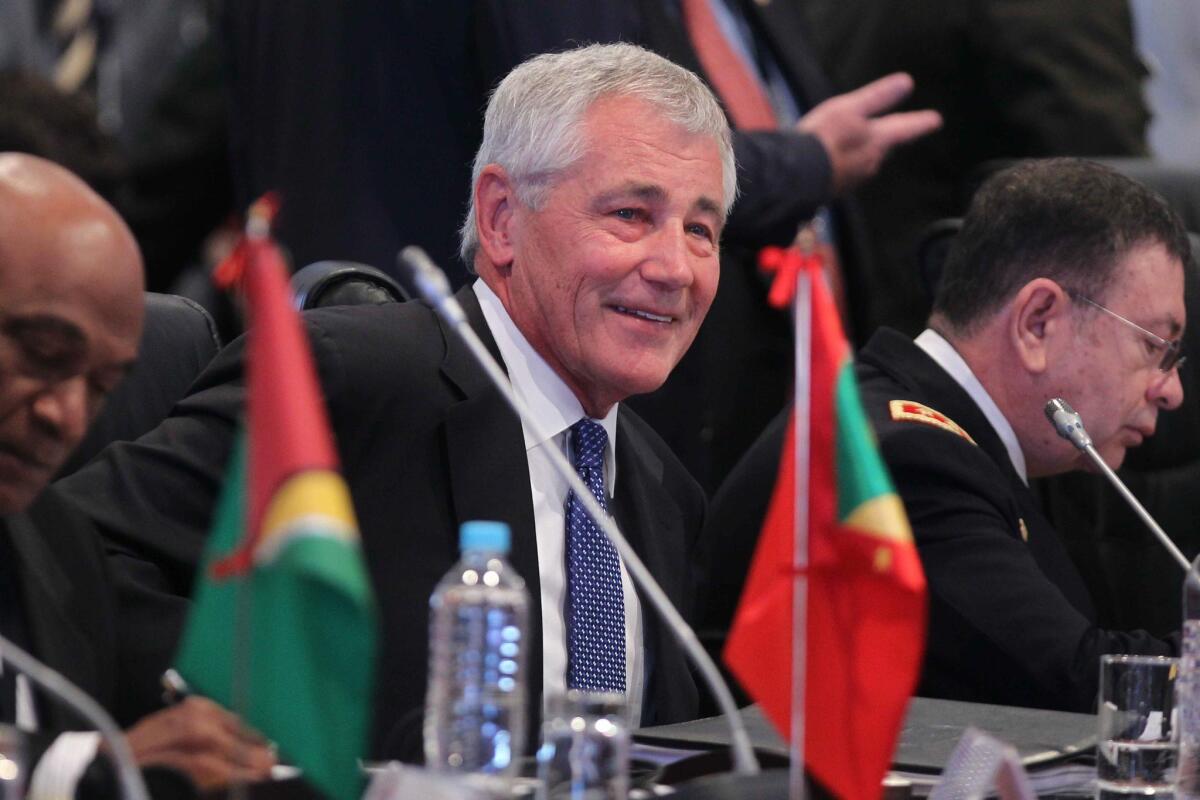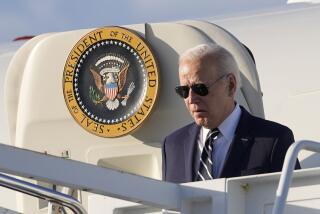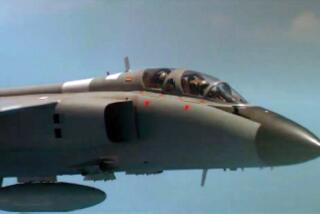Obama to meet with 20 foreign defense chiefs on Islamic State threat

President Obama will meet with more than 20 foreign chiefs of defense at Andrews Air Force Base on Tuesday to discuss strategy in the battle against Islamic State militants.
Defense Secretary Chuck Hagel said the objective of the meeting is to develop coordination and establish defined missions among the international partners in the campaign against the Sunni extremists, who have seized large areas of land in Iraq and Syria.
“They will be working through those specific areas and defining specific contributions that these nations will make,” he said Monday after touring the Iglesia de Santo Domingo, a church built here in 1698. “I’m much encouraged by the meeting. It’s going to be very important.”
Hagel is flying back to Washington after wrapping up a six-day trip through South America talking with top leaders in Colombia and Chile, and attending the Conference of Defense Ministers of the Americas in Peru.
While Hagel is traveling, the meeting at Andrews will be convened by Chairman of the Joint Chiefs of Staff Gen. Martin E. Dempsey, and will include Gen. Lloyd Austin, commander of U.S. Central Command.
France, Britain, Belgium and other European partners are expected to attend, as well as members of the Sunni Arab governments — Saudi Arabia, the United Arab Emirates, Jordan, Bahrain and Qatar — that joined the fight last month.
The U.S. military and its coalition of allies have waged war against the extremist fighters through aerial bombardments. Despite hundreds of airstrikes that have pummeled Islamic State militants across Iraq and Syria, fighting units from the Islamic State have still advanced on towns.
In recent weeks, the U.S. has seen limited effectiveness from the targeted airstrikes, particularly at the Syrian border town of Kobani. This is in part because the coalition does not have an effective partner on the ground in Syria and is not in close communication with any militia group, the Pentagon says.
Officials hope to train and equip moderate Syrian rebels as a proxy force against Islamic State.
Turkey, which will also be represented at the meeting at Andrews, agreed this week to provide rebels there with light arms and train them in infantry tactics. Pentagon officials also said that Turkey agreed to give U.S. military planes access to its airbases, including one in southern Turkey that is within 100 miles of the Syrian border.
Turkish government officials have since denied that they had agreed to grant such access and that further talks were needed. Military officials from U.S. European Command and U.S. Central Command arrived in Turkey this week to discuss opportunities for collaboration.
Hagel said he was “optimistic about progress” being made in those talks.
Twitter: @wjhenn
More to Read
Start your day right
Sign up for Essential California for news, features and recommendations from the L.A. Times and beyond in your inbox six days a week.
You may occasionally receive promotional content from the Los Angeles Times.







